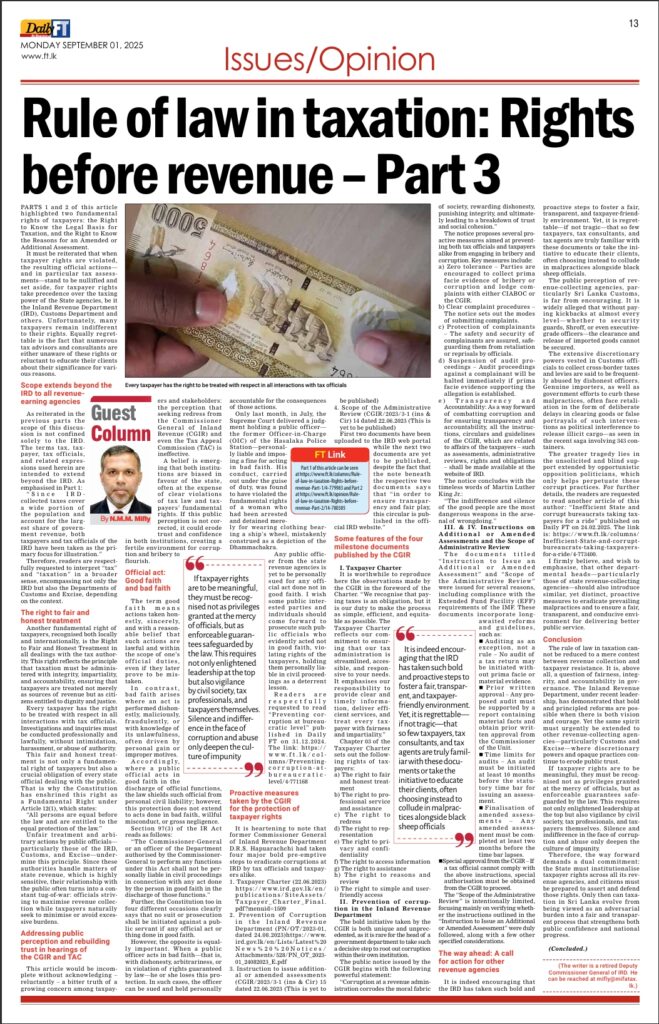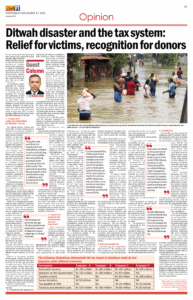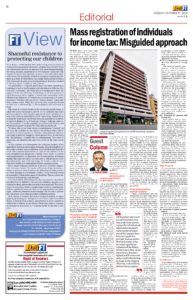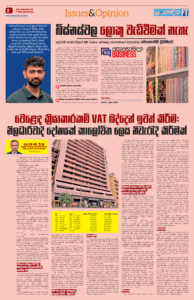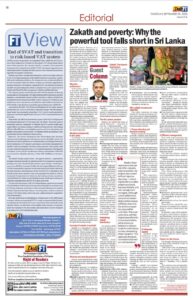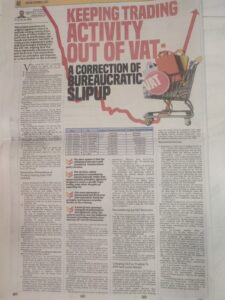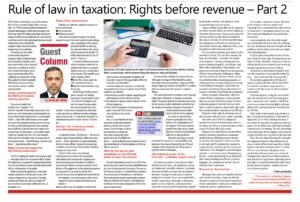Welcome to the final chapter of “Rule of Law in Taxation: Rights before Revenue.” In this section, we focus on a key idea: every taxpayer should receive a clear explanation for any tax assessment, not just a number, but also the reasons behind it. Section 135 of the Inland Revenue Act helps ensure fairness by requiring tax officials to be transparent, support their decisions with credible evidence, and adhere to the law. Now that tax evasion is treated as a criminal offense, officials must meet a higher standard of proof, which provides honest taxpayers with more protection. Courts have often rejected assessments that lack proper explanations, thereby upholding citizens’ rights against unfair decisions. These legal safeguards are more than just technical details; they help build public trust and make sure taxation is fair and accountable.
As we conclude this series, we will examine your right to fair and honest treatment, discuss the challenges of rebuilding trust in tax institutions, and highlight the crucial reforms required in Sri Lanka’s revenue agencies. Our goal is to transform taxation from a frustrating process into a clear and empowering one that fosters public confidence and supports the country’s growth.
Part 01 : Rule of law in taxation: Rightsbefore revenue – Part 1 – Mifa Tax Consultation
Part 02 : Rule of law in taxation: Rightsbefore revenue – Part 2 – Mifa Tax Consultation

